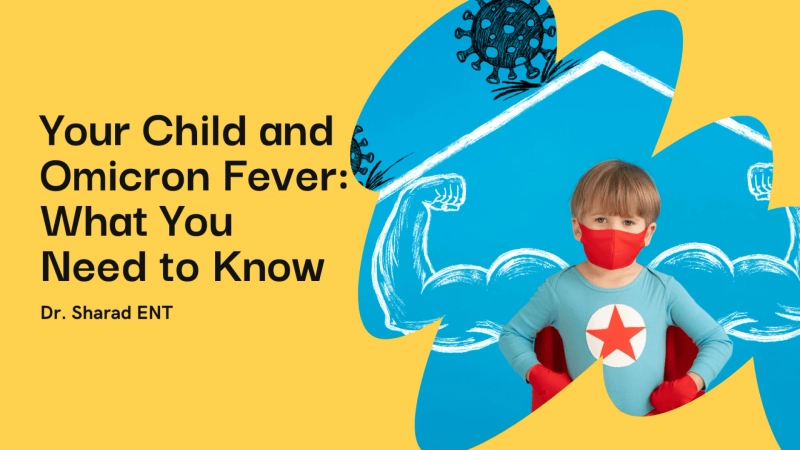Being a parent, no one can see their child in pain, and it’s our top priority to be concerned about the well-being of our children. The emergence of new strains of COVID-19, such as Omicron, has caused concern among parents around the world. In this article, we'll go over what are the right steps to take when your child shows signs of any sickness, including the Omicron version.
Omicron is one of the many variants of the SARS-CoV-2 virus that causes COVID-19. In late 2021, it was first identified
It was first identified in late 2021 and quickly garnered attention due to its high mutation rate. Although the full extent of its impact is still under study, it's essential to stay updated on the latest information from reliable sources such as the World Health Organization (WHO) and the Centers for Disease Control and Prevention (CDC).
Recognizing Symptoms
Omicron, like other variants of COVID-19, may present with various symptoms. Common symptoms include fever, cough, congestion, sore throat, loss of taste or smell, fatigue, and shortness of breath. If your child displays any of these symptoms, especially in the context of known exposure to someone with COVID-19, it's essential to take immediate action.
What to Do if Your Child Shows Symptoms
Isolate Your Child: As soon as you notice symptoms, isolate your child from others, including other family members, as much as possible. This helps prevent potential spread.Contact a Healthcare Professional: Reach out to your child's healthcare provider to discuss the symptoms and receive guidance. They can help determine if a COVID-19 test is necessary.Testing: If advised, arrange for a COVID-19 test. Many locations offer free testing. Results may be available in a day or two.Monitor Symptoms: Keep a close eye on your child's symptoms and seek medical attention if they worsen or if your child has trouble breathing.Quarantine: If your child tests positive for COVID-19, follow quarantine guidelines. This typically involves staying home and away from others for a certain period.Inform Close Contacts: Notify close contacts, such as teachers, caregivers, and friends, if your child tests positive. They may need to take precautions or get tested.General Guidelines for Care
Whether your child has COVID-19 or any other illness, the following general guidelines apply:
Hydration and Nutrition: Ensure your child stays well-hydrated and well-nourished. Offer clear fluids and easily digestible foods.Rest: Encourage your child to rest and get plenty of sleep. Adequate rest is essential for recovery.Fever Management: If your child has a fever, you can use over-the-counter fever-reducing medication as recommended by your healthcare provider.Comfort and Support: Be there for your child, offering comfort and emotional support. Illness can be frightening, and your presence is reassuring.Follow Healthcare Advice: Always follow the guidance provided by your healthcare provider. If your child's symptoms worsen or new symptoms develop, contact them immediately.
Prevention is Key
While it's crucial to know what to do if your child falls ill, prevention is equally important. Encourage your child to practice good hygiene, wear masks in crowded or indoor settings, and get vaccinated if they are eligible. Additionally, stay updated on vaccination recommendations and booster shots.
Stay Informed
In the face of evolving situations like the Omicron variant, it's vital to stay informed through trusted sources. The guidance provided by health authorities may change as more is learned about the virus and its variants.
Remember, as parents, you are your child's best advocate. Trust your instincts, seek medical advice when needed, and prioritize your child's well-being. We are all in this together, and with the right information and precautions, we can help keep our children safe.


